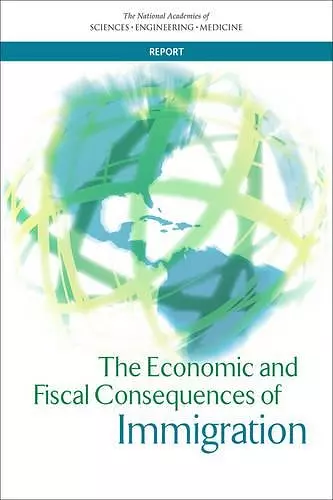The Economic and Fiscal Consequences of Immigration
Understanding the impact of immigration on the U.S. economy
Committee on National Statistics author Division of Behavioral and Social Sciences and Education author National Academies of Sciences, Engineering, and Medicine author Panel on the Economic and Fiscal Consequences of Immigration author Christopher Mackie editor Francine D Blau editor
Format:Paperback
Publisher:National Academies Press
Published:13th Jul '17
Currently unavailable, and unfortunately no date known when it will be back

This report examines the economic and fiscal impacts of immigration, concluding that it positively influences long-term growth in the U.S. economy.
In The Economic and Fiscal Consequences of Immigration, the authors explore the nuanced effects of immigration on the U.S. economy and labor market. The findings indicate that while first-generation immigrants may impose higher costs on government resources, they are outpaced by the significant contributions made by the second generation. The report emphasizes that the long-term impact of immigration on wages and employment for native-born workers is minimal, with any negative effects primarily affecting earlier immigrants or those with lower educational attainment.
The book also highlights the demographic reality that over 40 million people in the U.S. are foreign-born, with an additional substantial number having at least one foreign-born parent. This demographic shift has made immigration a pressing policy issue, influencing various sectors, including the economy, education, and healthcare. The interplay between immigration and these areas creates a complex landscape that policymakers must navigate.
As the patterns of immigration continue to evolve, so do their implications for American society and institutions. The Economic and Fiscal Consequences of Immigration serves as a vital resource for understanding these dynamics, offering insights for lawmakers, researchers, and the public alike. It aims to inform discussions on immigration policy by providing a comprehensive analysis of its economic and fiscal impacts, ultimately supporting a more informed dialogue on this critical issue.
ISBN: 9780309444453
Dimensions: unknown
Weight: unknown
642 pages